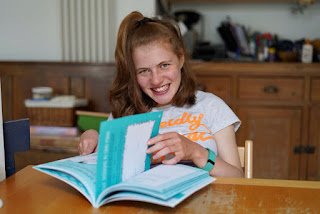My daughter would fall somewhere between 7 and 8 in the image. The NHS has since clarified (in the small print) that the classification shouldn’t be used for people with cerebral palsy and learning difficulties, but that’s not especially reassuring. Over the years we’ve met a few doctors who appear to believe that quality of life is simply a function of independence and physical and mental capacity, and I’d not want one of these to be making a critical choice about my daughter.
It was reassuring to see the collective intake of breath and disbelief at our Government’s initial response to this crisis - that we just had to accept the situation, lose some of our vulnerable friends and family members and sit it out till most of us develop immunity. Many of us look around and can see that the risk categories include ourselves or those whom we value deeply and are not prepared to sacrifice on the altar of our economy. Lots of us had taken measures to protect ourselves and our loved ones well before being instructed to do so.
But in this poster, and the threat of this virus to all of us who generally feel secure and invulnerable, we’re faced with several uncomfortable truths.
1. Despite laws, policies and school lessons about equality, we are not all perceived as equal, or treated as equal in reality.
2. Many of our fellow citizens will push and shove to get what they need without thinking of others, and we are all tempted to do this if we’re honest. If we’re not, then perhaps this is because we are fortunate enough not to need to.
3. At some point in our lives we will find ourselves in the “less valuable” category, if we’re not there already.
4. We’re not self-determining and all-powerful individuals. We are deeply dependent on one another, and highly vulnerable to the powers and threats of nature.
5. Nations are a human invention based on geography and shared history. Practically we can’t “go it alone”, and we don’t have the best technology and ingenuity to withstand all crises. We ought to work with our brothers and sisters all over the world and really listen and learn from others with valuable experience and knowledge to share. Great Britain isn’t feeling quite so great just now.
We are also learning some happier lessons about the value of human contact, and how to connect with one another in different ways. We’re appreciating the beauty of the world around us and noticing things that some of us usually rush frantically past. We’re being creative and working together with patience to find solutions to new problems. We‘re learning vital lessons that need to imprint deep within us, and inform how we conduct our lives when this is all over.
It would be particularly good if we could all remember what it feels like to be vulnerable.






















